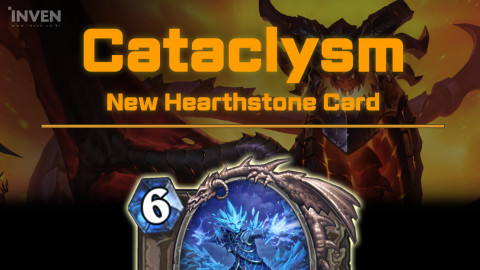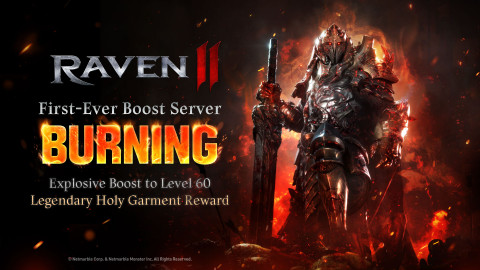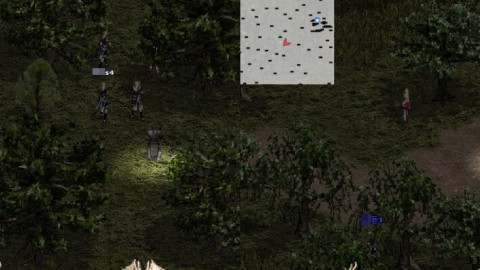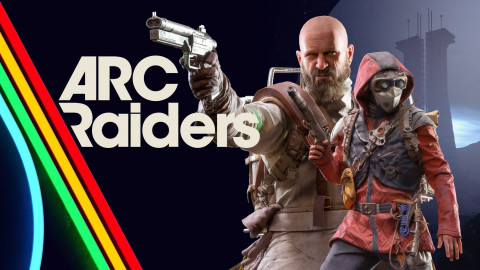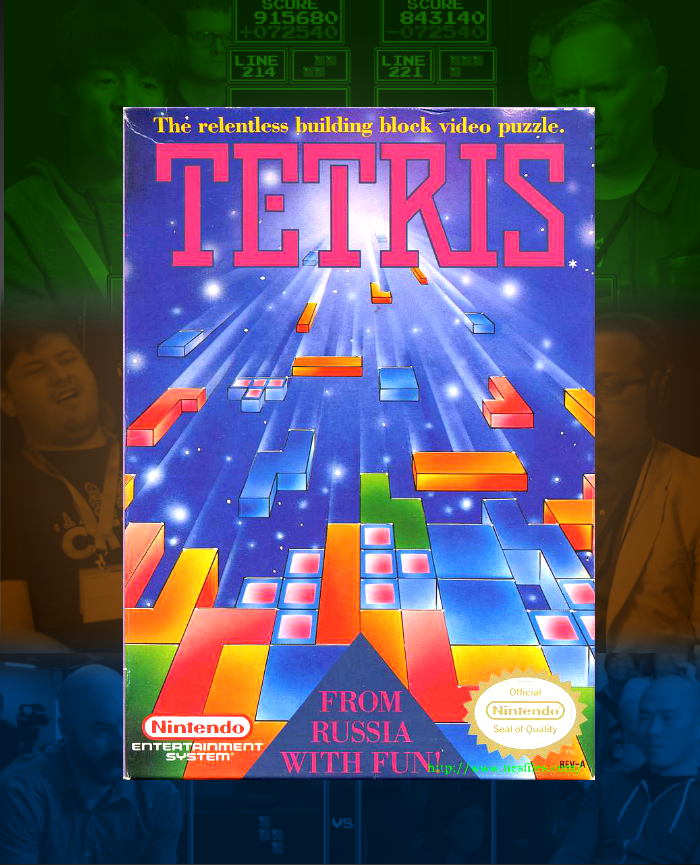
I can't pretend to know how YouTube calculates their video suggestions, but they did right by me this time. Curiosity led to engagement which soon led to anticipation. By the time the video hit the 20-minute mark, I was absolutely fascinated with competitive Tetris. I watched hours of this particular tournament and, like many of the comments below them, I was amazed at how hard it was to stop watching.
Here are some of my favorite reactions:
Learning of the Tetris World Championships: "lol nerds."
10 minutes in: "Huh. This is kind of intense"
5 hours later: Wringing sweaty hands "COME ON! YOU CAN NOT AFFORD TO MISS THAT S-PIECE TUCK WHEN YOU'RE ONLY ONE TETRIS DOWN, MAN!"
"This had me emotional and I don't even play tetris"
Pre-Video: "How could they possibly make Tetris a sport?"
Post-Video: "...yes...Yes..YEAAAAAAH!"
Did I search for this video? No.
Did it seem to be exciting? No.
Did I watch it anyways and loved it? - Absolutely yes.
This level of engagement and excitement is something the esports industry fantasizes about. These are the reactions that industry giants like Blizzard, Riot, Epic and Valve attempt foster, quite literally, every single day.
It is the gold standard of every esports broadcast -- The ability to turn completely naive first-time viewers into interested and engaged fans eager for more. It is a lot easier said than done and something the top esports broadcasters continues to struggle with.
So what makes Tetris so special?
Keep in mind, this isn't the first time I have ever seen or heard of competitive Tetris. I am familiar with the general strategy of dropping tetromino's to the left while waiting on a sacred "I" piece to achieve a Tetris -- the term used to describe when 4 stacks are eliminated at once.
But as someone who is nearly constantly watching esports and criticizing how they are delivered, something about this Tetris tournament inspired me to write this column. These matches, I believed, captured the lighting in a bottle entertainment factor that every esport broadcast is desperately trying to understand.
I have written about this topic before because I am of the firm belief that some games make for great esports and other games do not. There are reoccurring traits that successful esports titles have in common and some games are tragically at odds with those elusive traits.
Tetris is unavoidably a niche game that won't be toppling Fortnite or League of Legends any time soon. However, the effectiveness of their broadcasts cannot be ignored.
The Commentary:
Due to the repetitive nature (and intense speed) of competitive Tetris, the commentators constantly narrate player mindsets, highlight relevant tournament history, and inform viewers on the "big picture" state of the match. You can tell that each commentator is actively searching for opportunities to add meaning and narrative depth to an otherwise mechanical game.
On top of this, competitive phrases like "Hyper-Tap", "I Drought", "Tetris for (player name) and "Dirty Tetris" are easy enough to understand within the context of what viewers are watching. As a result, commentators teach new viewers what moments matter without slowing down the pace of the match or oversimplifying it.
As they begin to learn the jargon their own, I suspect it becomes easier for viewers to appreciate the tournaments authenticity. The passionate knowledge of the commentators (James Chen is an expert at providing player narratives) is underscored by moments of silence, allowing tension to build and peak organically.
The Crowd:
Throughout the tournament, you can hear the murmur of a live crowd fluctuating with excitement during each match. The audible passion of the fans present become another indicator that helps new viewers feel the excitement and understand what is going on. I suspect this is because competitive Tetris is so niche -- whoever is present must really love Tetris.
The crowd is naturally on the edge of the seat. They cheer when something great happens, they gasp when a player narrowly avoids defeat, they fill the room with bubbling tension when the match is agonizingly close. The noise of the crowd makes the tournament feel alive, even for first-time viewers.

Player cameras and human faces:
The decision to feature a camera feed of both players and their hands during the entirety of every Tetris match was likely born out of practicality. Broadcasters can't really alter or expand upon the visual representation of classic Tetris and without player cams, there wouldn't be much to watch.
And yet, the player cameras are, without a doubt, the most gripping and important part of what makes competitive Tetris so great. With the focused faces of two competitors on full display, every move of Tetris is amplified by that all-important human factor that modern esports so often forgets about during a broadcast. Viewers see dozens of micro-expressions every minute, each providing greater insight into the players and the competitive struggle they are engaged in.
Is the challenger nervous? Is the champion calm and collected?
Oh no!
A player flashes a brief grimace of disgust -- something bad must have happened. These moments make competitive Tetris a viewing experience unlike any other. By the end of each match, you can't help but feel invested in each player and their tournament aspirations. It is no wonder that new viewers are surprised they sat through multiples hours of competitive Tetris.
They didn't realize they were really watching a human drama unfold before them.
The difficulty of competition can't be ignored:
There is a clear display of prowess and skill that even the most inexperienced of viewers can immediately understand. The traditional methods of disrespecting competitive gaming doesn't work when the concentration and mental effort of both players are impossible to ignore.
In addition, Tetris is an iconic game that nearly everyone has either heard of or played at one point in time. The competitive broadcast is 1:1 mirror of what it looks like to actually play Tetris, further aiding how easy it is to appreciate the prowess on display. Because the majority of viewers have only played Tetris in the most casual of settings, the experience of watching players better than you by many, many magnitudes can be mesmerizing.
Modern esports titles are much more complex than Tetris and this reality can make it exceedingly difficult for broadcasters to create an enjoyable viewing experience. Whether it is Battle Royale genre and its struggle to highlight competitive matches between 60+ people or MOBAs "1-screen-3-lanes" dilemma, each genre has their share of unique problems.
However, I think the biggest thing broadcasters can learn from Tetris is how invaluable the human factor is when creating an entertaining esport. Broadcasters should, at every opportunity, include the faces of competitors during a match. Their faces turn an unintelligible blur of pixels into a human conflict -- something traditional sports benefit from by default.
In a perfect world, the sounds of a passionate crowd (even a small one) that reacts accordingly to the ebb and flow of a match should always be audible. They intrinsically guide viewers who may otherwise not understand what moments are important and which are not. Lastly, it builds tension which is what any competition thrives on.
If you have the time, try watching a round of competitive Tetris for your self. I suggest the first embedded video featuring challenger Joseph Saelee vs. 7-time champ Jonas Neubauer as a jumping off point. There is a reason is has nearly 2.5M views.
Was it engaging? Do you have an idea as to why that I may have missed? Let me know in the comments section and maybe the esports broadcaster responsible for your favorite game might take note.
-

Warcraft 3 is my one true love and I will challenge anyone to a game of Super Smash Brothers Melee.
-

I write. I rap. I run. That’s pretty much it.
Sort by:
Comments :0

